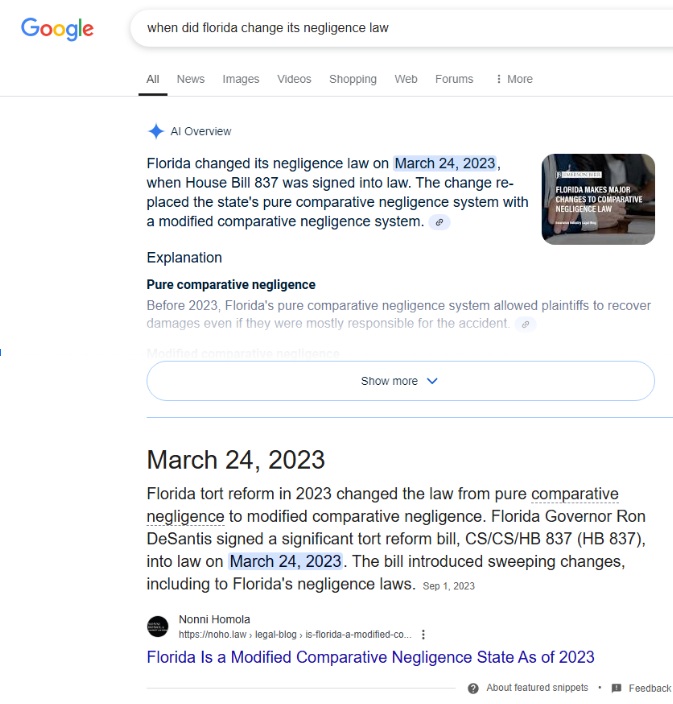Your law firm is ready to deliver results. The problem? Getting clients to find you online. You know you need compelling website content to turn leads into clients—but why isn’t your site ranking? Why aren’t the phone calls coming in?
The truth is that thin, spammy, or low-quality content doesn’t just fail to convert, it usually fails to rank in the organic search results. In other words, bad content hands potential clients directly to your competitors. With technology making it easier and faster to churn out content, the battle for online visibility is only growing. Ask yourself: as the volume of content increases, how will your firm stand out?
To succeed, law firm content needs to inform, engage, and inspire trust. It should prove your authority in the legal field and demonstrate why your firm is uniquely qualified to help. Without exceptional content, you’ll struggle to rank on search engines or capture the attention of the clients you want.
So, how can your firm stand out in this crowded, competitive space? Let’s explore how quality content can establish your presence in the search results and convert more visitors into signed cases.
Why Does Content Matter for a Law Firm’s Website?
Content is the foundation of your law firm’s online success. Search engines exist to share content, whether text, images, video, or maps. Without content, your law firm doesn’t stand a chance of being found online. Search engines have no reason to index your site, and potential clients can’t find you in search. In other words, you’re practically invisible.
So, what to do? Start creating some content, right? Here’s the kicker: publishing content for the sake of it doesn’t cut it. According to Google’s guidelines, high-quality content must demonstrate experience, expertise, authoritativeness, and trustworthiness (E-E-A-T) to be effective.
- Experience: First-hand familiarity with cases similar to the reader’s, showcasing your firm’s real-world success.
- Expertise: Specialized, in-depth knowledge presented through accurate, detailed, and insightful information.
- Authoritativeness: Proven qualifications, strong reputation, and impressive case results that position your firm as highly credible.
- Trustworthiness: Reliable, honest, and transparent communication builds readers’ confidence in your firm’s ability to help them.
People looking for a lawyer need to trust that you know what you’re doing, that you’ve done this before. They need to know they can rely on you to solve their problem. Write compelling content that addresses your audience’s concerns, answers their questions, and gives them a reason to choose your firm over competitors.
In other words, write content that not only meets their expectations but exceeds them.
The Pillars of Effective Content for Law Firms
As we create content for law firms, our team aims to establish EEAT by understanding what your audience wants, connecting with their pain points, and demonstrating your firm’s ability to solve their problem and achieve the desired result.
Know What Your Reader Wants
Effective content starts with understanding your audience and their needs. Potential clients visit your website seeking answers and reassurance about their legal issues, and your content must reflect this.
Begin with keyword research to identify what potential clients are searching for at different stages of their journey. Crucially, focus on user intent. User intent simply refers to what the searcher hopes to find when entering their query into Google. For instance:
- A search for “Miami car accident attorney” suggests the user is ready to hire a lawyer.
- “How to file a car insurance claim” suggests the user is looking for general guidance.
Keyword research tools like Semrush or Ahrefs can help you uncover these keywords and understand their intent.
To further align your content with user intent, anticipate common questions or concerns your audience may have, such as “What should I do after an accident?” or “Can I afford a lawyer?” Use Google to search your main keyword and review the People Also Ask section for related questions your content can address. Many keyword tools, like Semrush or Ahrefs, also include filters to identify keywords phrased as questions.
By addressing these concerns directly, you’ll demonstrate an understanding of your readers’ challenges and position your firm as the trusted solution they’re seeking.
Connect With the Reader’s Pain Points
Potential clients visit your website because they’re dealing with stressful and often life-changing situations. They’re looking for someone who understands their struggles and can help them find a resolution. Connecting with their pain points is essential to building trust and showing that your firm is prepared to help.
Speak directly to the challenges your readers are facing, whether it’s navigating medical bills after a personal injury, understanding how to handle insurance companies, or feeling unsure about the legal process. Family law clients may feel uncertain about custody battles or the emotional toll of divorce.
Validate their concerns and reassure them that they’re not alone. Acknowledge their pain points with clarity and compassion, and then you can position your firm as the solution.
Demonstrate Your Firm’s Ability
Readers with legal needs have much at stake. A life-changing injury, a recent arrest, a divorce, or a custody dispute. They need to know you not only understand what they’re going through but that you can deliver results.
Position your firm as a solution to the reader’s pain points, and prove it. Showcase your experience and authority by highlighting past successes. For instance, share case results that demonstrate your ability to achieve favorable outcomes in situations similar to your reader’s. Whether it’s a significant settlement in a personal injury case or a favorable verdict in a criminal defense case, examples of your past success give your law firm credibility.
Reinforce that credibility with testimonials that illustrate how your firm has helped others. Client reviews or quotes about how your law firm helped them overcome challenges or that speak to the service and ease of communication with your law firm provide social proof that can make it easier for potential clients to take the next step and contact you.
Finally, tell readers your values and how you put them into practice. Most importantly, explain how those values shape the client experience and drive desirable outcomes for clients.
A Real-World Example of the Power of Effective Law Firm Content
Let’s look at a real-life example from one of our clients. Despite an otherwise established presence in its local market, a personal injury firm in Florida struggled with its organic rankings. Its content was outdated and, in many cases, very thin, meaning it failed to satisfy the user intent. They weren’t ranking for transactional terms – i.e., terms searched for by people looking for a lawyer – and so their would-be client base was not finding them online.
To address these challenges, we implemented a strategy that, among other things, focused on revitalizing their thin, outdated content so it aligned with user intent and demonstrated the firm’s well-established reputation in their local market. We built new pages too, fine-tuned their internal linking, and improved the site’s technical infrastructure.
The results speak for themselves:
- Within three months, their impressions doubled.

- In less than a year, keywords in the top three positions increased by 55%.

- Most importantly, signed cases jumped by 116% over the course of a year.
You can take many approaches to getting leads and clicks. Local map results, local service ads, pay-per-click ads. All are important. However, organic growth remains a cornerstone of sustained online success. As this example demonstrates, neglecting lead-generating pages like practice area pages can significantly hold your firm back.
Practice area pages are just one piece of the puzzle, though. To build a successful content strategy, law firms need to focus on a variety of content types tailored to different client needs.
Key Types of Content for Law Firms
Each type of content on your site serves a unique purpose. Practice area pages connect with readers ready to hire a lawyer. FAQs and blogs address pressing questions to build authority. Case results prove your track record of success.
Together, your website content should fully reflect your law firm’s unique brand, communicate your purpose, and demonstrate your ability to help clients navigate their legal challenges.
Practice Area Pages Build Trust & Capture Leads
Practice area pages (or service area pages) are your “transactional” or “commercial” pages. They’re pages that speak to readers who are ready to hire a lawyer or are researching their options. They want to learn more about your firm, what you offer, and whether you can solve their problem.
- Recognize the reader’s pain points: Address the specific challenges or concerns they may have, such as navigating the legal process, worrying about paying bills, or fearing not being able to pay for medical care.
- Position your firm as the solution: As you acknowledge their pain points, show how your experience, expertise, and values translate into resolving their problems.
- Incorporate trust signals: Highlight related case results, client testimonials, or professional credentials to reinforce your credibility.
- Optimize for local intent: Use keywords and content specific to the geographic areas you serve to reflect your familiarity with the local area and community.
- Write with clarity and empathy: Make complex legal concepts approachable and understandable to reassure potential clients and build confidence.
Their “ready-to-buy” intent makes ranking for these terms highly valuable in the organic results, and competition for these terms, especially in big markets, can be fierce. Be strategic about which keywords you’re targeting, and understand that it might take more resources to rank in the most competitive markets.
Start by targeting the markets where you’re physically located. Write pages for the practice areas (case types) that are most important to your law firm. Our SEO tactics blog recommends identifying your “money pages,” that is, pages that target the markets and case types that are most important to your law firm’s success and where your experience, expertise, authority, and trust are greatest.
FAQs & Blogs Demonstrate Expertise
FAQs and blogs are another way to get people on your website, even if they aren’t ready to call you. When someone visits an FAQ or a blog page, they’re looking for specific information through long-tail keywords. Tools like Semrush and Ahrefs can help you identify long-tail queries, often in the form of a question, related to your main practice areas.
Examples of long-tail keywords that a personal injury law firm might target include:
- How long do I have to file a car accident lawsuit?
- What to do after a car accident?
- Why is my car accident settlement taking so long?
FAQs and blog posts usually target informational intent queries (that is, the user is looking for information rather than ready to hire a lawyer. Law firm blog posts are not sales pitches, but they establish your firm as authoritative and trustworthy. By providing helpful, accurate information, you can establish your firm as a go-to source for legal guidance, building trust with readers who may need a lawyer in the near future.
FAQ and blog pages are also a good opportunity to capture featured snippets and appear in the AI Overviews. (Featured snippets aren’t going away, but, anecdotally, we’ve seen AI Overviews replace featured snippets for some terms that used to reliably return featured snippets.) Some queries trigger both an AI overview and a featured snippet.

The most effective FAQs and blog posts follow a simple principle: answer the reader’s question clearly and concisely. For example, if the question is, “How long do I have to file a car accident lawsuit?” then tell the user right away that they have three years to file (or whatever it is in your state). Don’t beat around the bush or try to impress with flowery prose. A straightforward FAQ or blog post is good for users as well as search engines.
And, finally, a bonus. Your FAQs and blog posts can support your practice area pages too. Link from your FAQs and blog posts to your main practice area pages. The internal link lends weight to your practice area page as relevant and helps position it as a pillar page on your website. It could also funnel users who weren’t actively looking for a lawyer to a page that is built to convince them of your value and abilities.
Case Results & Testimonials Show Off Your Experience
Nothing builds trust and confidence like proof. People who need to hire an attorney want to know that the firm has successfully handled cases similar to theirs.
List notable case results your firm has achieved for its clients. Indicate the type of case (e.g., car accident, workers’ compensation, etc.) and settlement or judgment amount, if permitted. Be sure you comply with ethical rules that may prohibit disclosing confidential client information, and provide a disclaimer that your past results won’t guarantee future success.
If you’re comfortable, make your case results even more specific to the types of cases your readers are dealing with. Adding relevant details can better demonstrate your ability to resolve their legal issues effectively. You don’t have to give them the nitty-gritty of the case, but consider details that will demonstrate your firm’s success, expertise, and experience with cases like the reader’s. Here are some details that can make an impression on readers:
- Give details about where your case occurred. One of our clients indicates the county where the case took place, helping to establish their familiarity with cases in that market.
- Compare the initial offer to the final settlement or judgment. One of our clients does this, and it demonstrates their ability to turn low offers into settlements or judgments that truly satisfy the client’s needs.
- Highlight influential cases. Was it the highest settlement in county or state history? Did your case involve high-profile individuals (no names, of course)? Did the case effect law changes at the state or local level?
In addition to your case results, testimonials from satisfied clients can be a powerful tool for building trust. Client stories offer relatable, personal accounts of your firm’s dedication and success. By sharing how you’ve helped others, you provide social proof that reassures potential clients they’re making the right choice.
Seeing is believing, so show readers what you can do.
About Pages and Attorney Biographies Establish Trust With Readers
An About page and attorney bio pages showcase your law firm’s talent and experience. Potential clients want to know who you are and why they should trust you. These pages should not only highlight your qualifications but also foster an emotional connection that makes your firm memorable.
Don’t underestimate the power of an emotional connection, especially in digital spaces flooded with AI. Readers are still navigating to firm- and attorney-specific pages, looking for an emotional connection.
- Tell your story: Briefly summarize your journey to becoming an attorney who helped people like the reader.
- Share your values: Why are you a lawyer? What do you believe in? What role do your values play in how you serve clients and represent them in legal cases?
- List qualifications and accolades: In addition to your education and bar admissions, what awards or honors have you received?
- Types of cases you take: List or write about the types of cases you handle. Be broad (mass torts, personal injury) or specific (Roundup lawsuits, slip and fall), depending on the cases you handle.
Believe it or not, attorney bio pages are often among the most visited pages on attorney websites, and many visitors navigate to About pages too. Readers want to know what sets you apart from everyone else. They want reassurance that you’re qualified to handle their case and that you’ve done this before. Make these pages count.
Other Types of Content for Law Firm Websites
In addition to practice area pages, FAQs, blogs, and case results, other types of content can also establish your law firm’s authority, build trust, and connect with your audience. These content types can expand your reach, establish your firm’s EEAT, and broaden your online presence:
- Foreign language content. Non-English-speaking segments of your target audience will appreciate your investment in them while widening your lead pool.
- E-books that establish thought leadership.
- Newsletters to nurture client relationships.
- Local content to connect with your community and show that you care about serving its citizens. You can address local concerns and issues, like particularly dangerous highways on a car accident piece.
- Infographics for visual engagement. Post them on your website, and reformat and distribute them across different social platforms, driving brand awareness.
You Need Content That Delivers Leads—We’ll Get You There
Ready to take your content to the next level? Book your site audit with We Do Web today and let’s get your firm on the front page of Google. We’re here to help you succeed.

Alex Valencia is an influential entrepreneur, marketer, speaker, podcaster, and CEO of We Do Web Content, one of Inc. 5000’s fastest-growing businesses in America. His agency implements game-changing content marketing strategies and produces top-ranking web content for law firms, medical professionals, and small businesses nationwide.


